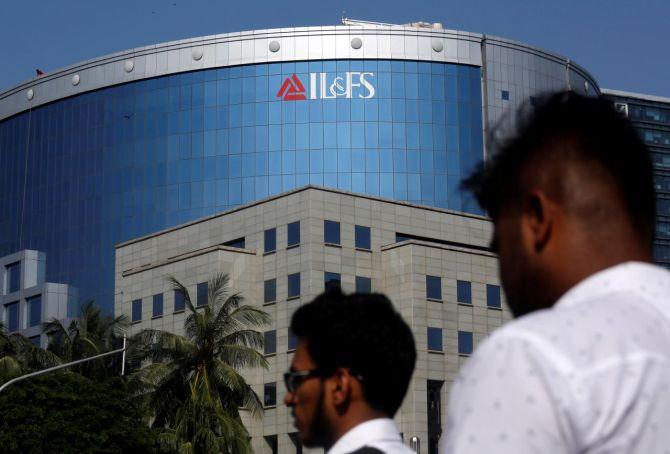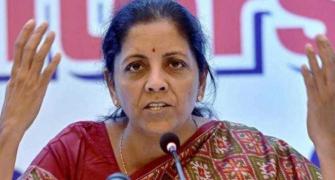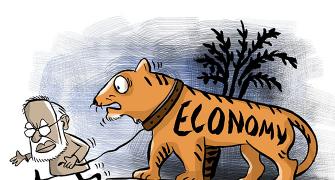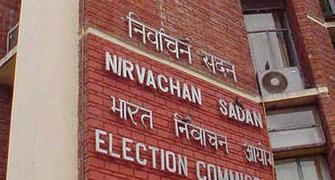Perhaps the way forward could be the introduction of uniform rating standards - on the lines of accounting standards for the accounting profession - with a separate regulating authority for enforcing those standards, says Sudipto Dey.

The recently filed chargesheet by the Serious Fraud Investigation Office (SFIO) in the IL&FS case has not directly indicted crediting rating agencies (CRAs) for not raising the red flags well in advance before the eventual financial meltdown of the beleaguered infrastructure lending group.
However, this does not let them off the hook.
In its chargesheet, filed last week, the SFIO noted that the top management members of IL&FS “deliberately presented falsified, spruced up, deceptive and misleading” financial statements to the credit rating agencies, who continued to give them the highest ratings till the later part of 2018.
While explaining the modus operandi of the financial fraud, the chargesheet said: “The incorrect provisioning of investments in half-yearly financial statements were of great significance as such incorrect financial statements were being used by the rating agencies for various new instrument rating and surveillance rating.
"These particular financials were also used for borrowing from market.
"Wherein such incorrect financials were used to lure the investors investing the public money.”
The Securities and Exchange Board of India (Sebi), which regulates CRAs, through its own investigation, has already taken note of the lapses on part of the rating agencies,namely India Ratings & Research, ICRA, and Credit Analysis and Research (CARE), in the IL&FS case.
Earlier in February this year, the Standing Committee on Finance, chaired by M Veerappa Moily, submitted its report suggesting several measures to strengthen the credit rating framework in the country.
The panel suggests a fundamental shift in how rating agencies are remunerated for their services.
It said that the regulator should consider a shift to the “investor-pays model” or “regulator-pays model” from the current practice of the “issuer-pays model”.
The other key recommendations are mandatory rotation of credit agencies and lower threshold for agencies to register with the regulator to foster competition in the market.
Experts, however, are divided over the implications these measures would have on the regulatory landscape for rating agencies.
The clamour for a shift in the remuneration model is driven by the assumption that once the issuer stops paying for credit rating, the rating agencies would start producing honest and accurate reports, say experts.
The upside of the issuer-pays model is that it ensures that the entire spectrum of investors - whether big or small - have access to the credit rating report.
However, in an investor-driven exercise, the credit rating is available to those who can pay to obtain it.
Priyanka Devgan, counsel at law firm VERUS, points out that in a regulator pays or investor pays model, CRAs may tend to offer lower than the accurate rating.
“In the case of investors a lower than accurate/warranted rating helps investors to avoid downgrading.
"In the case of regulators, by offering lower than accurate rating, CRAs would tend to hedge their liability with the regulator,” she adds.
Experts say the issuer-pays model will always be conflicted with inherent limitation.
Vidisha Krishnan, partner at law firm MV Kini & Co, feels that the investor pays model should ideally be brought back with adequate checks and balances.
However, there are some like Sudhir Bassi, executive director, Khaitan & Co, who feel that the issuer-pays model still has relevance for India.
“The need of the hour is better supervision of the rating process within the rating agency, rather than changing the business model in relation to who pays for rating,” he says.
There are some who feel that India could use a mix of the three models.
“It is important to try out a mix of models to fundamentally re-align the interests of the CRAs and the investors, and remove distortions,” says Shreya Prakash, research fellow, Vidhi Centre for Legal Policy.
The panel’s recommendation on rotation of credit agencies is something most experts agree on. Though the jury is still out on whether this move helps to improve independence.
Rotation of credit rating agencies, modelled on the rotation of auditors under the Companies Act, is likely to sever long-term relationships that CRAs and issuers enjoy.
“This may promote healthy competition between CRAs and improve accountability for ratings,” says Prakash.
However, the move may create pressure on the new CRA to downgrade the earlier CRAs rating, is an apprehension that some experts have.
The idea of lowering the registration standard for CRAs does not find favour with most industry players and legal experts.
“Lowering registration standards may impact the ability of CRAs to provide reputational capital. One would have to be very careful while lowering registration standards,” warns Prakash.
Most experts feel that the eligibility norms for registration should be further tightened to ensure that only entities with institutional background, large pool of qualified and experienced people and reasonable net-worth are eligible to apply for registration.
“Credit rating is a critical function in the domestic economy as well as the international markets. We need to have a few highly regulated and reliable players”, says Krishnan.
Perhaps the way forward could be the introduction of uniform rating standards - on the lines of accounting standards for the accounting profession - with a separate regulating authority for enforcing those standards.
Photograph: Francis Mascarenhas/Reuters










